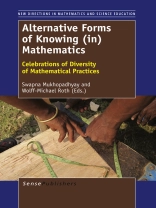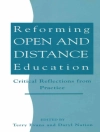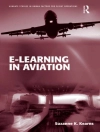This book grew out of a public lecture series, Alternative forms of knowledge construction in mathematics, conceived and organized by the first editor, and held annually at Portland State University from 2006. Starting from the position that mathematics is a human construction, implying that it cannot be separated from its historical, cultural, social, and political contexts, the purpose of these lectures was to provide a public intellectual space to interrogate conceptions of mathematics and mathematics education, particularly by looking at mathematical practices that are not considered relevant to mainstream mathematics education. One of the main thrusts was to contemplate the fundamental question of whose mathematics is to be valorized in a multicultural world, a world in which, as Paolo Freire said, “The intellectual activity of those without power is always characterized asnon-intellectual”. To date, nineteen scholars (including the second editor) have participated in the series. All of the lectures have been streamed for global dissemination at:http://www.media.pdx.edu/dlcmedia/events/AFK/. Most of the speakers contributed a chapter to this book, based either on their original talk or on a related topic. The book is divided into four sections dealing with: • Mathematics and the politics of knowledge • Ethnomathematics • Learning to see mathematically • Mathematics education for social justice.
Table des matières
Preface; Contributors; Celebrating Diversity, Realizing Alternatives: An Introduction; PART I: MATHEMATICS AND POLITICS OF KNOWLEDGE; Introduction; 1 Mathematics and Accounting in the Andes before and after the Spanish Conquest; 2 Contemporary Indigenous Education: Thoughts for American Indian Education in a 21st-Century World; 3 Crisis as a Discursive Frame in Mathematics Education Research and Reform: Implications for Educating Black Children; 4 Whose Language is it? Reflections on Mathematics Education and Language Diversity from Two Contexts; PART II: ETHNOMATHEMATICS; Introduction; 5 Consulting the Divine: The (Ethno)mathematics of Divination; 6 Map-Making in São Paulo, Southern Brazil: Colonial History, Social Diversity, and Indigenous Peoples’ Rights; 7 Developing an Alternative Learning Trajectory for Rational Number Reasoning, Geometry, and Measuring based on Indigenous Knowledge; 8 In Seeking a Holistic Tool for Ethnomathematics: Reflections on Using Ethnomodeling as a Pedagogical Action for Uncovering Ethnomathematical Practices; 9 From Ethnomathematics to Ethnocomputing Indigenous Algorithms in Traditional Context & Contemporary Simulation; PART III: LEARNING TO SEE MATHEMATICALLY; Introduction; 10 The Work of Seeing Mathematically; 11 Running the Numbers: A Conversation; 12 To Know How to See: The Realities of Learning and Teaching Mathematics; PART IV: MATHEMATICS EDUCATION FOR SOCIAL JUSTICE; Introduction; 13 Quantitative Form in Argument; 14 Connecting Community, Critical, and Classical Knowledge in Teaching Mathematics for Social Justice; Epilogue: Why Bother about Diversity of Mathematical Practices.












